 We wanted to get to know Jennia D’Lima (NAIWE’s Creative Nonfiction Expert) better, so last month we sat down with her. Here are some thoughts she shared with us.
We wanted to get to know Jennia D’Lima (NAIWE’s Creative Nonfiction Expert) better, so last month we sat down with her. Here are some thoughts she shared with us.
How do you determine which life moments deserve to be written about and which should be skipped over to maintain momentum?
The answer to this mostly boils down to what is the focus and/or theme of your piece. If a moment doesn’t support either, that is usually a sign that it doesn’t belong and that it’s being shared from a place that benefits the author more than the reader. However, much like when writing fiction, you can also ask yourself, “What happens to my story if I remove this?” If cutting the moment doesn’t result in a loss of clarity or weaken a character arc, it likely isn’t bolstering the piece as a whole.
How do you balance “showing” (scenes) and “telling” (reflection) to keep a memoir engaging?
There isn’t a magical formula for this balance, but do be on the lookout for a passage that reads as though it is describing a chain of events rather than inviting the reader into the experience. There will be times when exposition serves the purpose better than showing can, but the trick here is to be aware of your pacing. If it drags when you’re revisiting that section or feels like it’s jumping from one statement to the next, consider revising at least some of the passage so it’s “showing” rather than “telling.” This is where early readers and trusted writing friends can be especially helpful.
What is your advice for authors struggling to articulate why their personal story matters to the world?
First, ask yourself why it mattered to you. How did you change, or how did you change your perspective, beliefs, understanding? What personal transformation occurred as a result? Identify who you were both before and after, and now think of all the other people out there who may be in a similar “before” position who are perhaps in the “after” spot but feel alone and as if no one else could possibly grasp what they went through. When you question whether your story matters, think about those people and how you could help them feel seen by reading your story. These are no longer anonymous members in your book’s audience; they are now a personalized “why” behind why you’re writing.
——————
The shortest stories are sometimes the ones that stick with us the most. But while many of us are familiar with the many ways fiction can be written in a condensed format, we may not be aware of a trending market in creative nonfiction—the micro memoir.
The webinar will begin by defining what this form of creative nonfiction is and what it isn’t and what separates it from similar subgenres. Participants will then be shown how tips and tricks for writing short stories and flash fiction can be applied to creating micro memoirs. Examples, resources, and suggested reading will be supplied so that attendees will leave with the necessary tools and understanding to craft their own pieces.
You can join in this conversation on February 19 at 7:00 pm eastern, when NAIWE will host a discussion on working with agents. The cost for NAIWE members is only $10! Nonmembers can join for $30. Register today!
Jennia D’Lima is a full-blown logophile. She joined her high school’s newspaper in ninth grade, winning statewide awards for her writing, and expanded her journalism skills by continuing to write and edit throughout her high school years and as a college freshman. While earning her BA in psychology (and minoring in cultural anthropology with a focus on precolonial Mesoamerica) and her MA in applied developmental psychology, her writing and editing naturally skewed toward all things academic. Writing for and publishing in peer-reviewed journals, editing papers for classmates, and writing parenting resource guides honed her research skills. Jennia joined multiple professor-led research groups and completed four internships throughout her academic career. After graduating with a master’s, she worked at a national nonprofit in Washington, DC, and as an assistant researcher at the University of Washington in Seattle. Jennia gradually transitioned to full-time editing. As the host of the Writing & Editing podcast, she loves connecting with others in the community. Jennia enjoys traveling, volunteering, and taking creative photos of books and book-related items in those rare moments when she is not reading or editing.

 We wanted to get to know Laura Pennington Briggs (
We wanted to get to know Laura Pennington Briggs (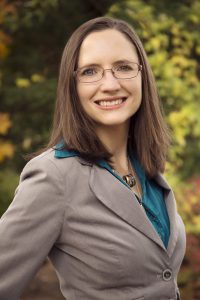 We wanted to get to know Rachel Bradley (
We wanted to get to know Rachel Bradley (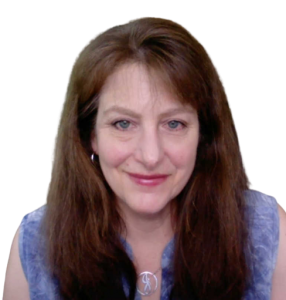 We wanted to get to know Jeanne Grunert (
We wanted to get to know Jeanne Grunert ( We wanted to get to know Jake Poinier (
We wanted to get to know Jake Poinier (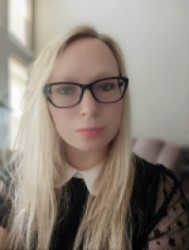 We wanted to get to know Jennia D’Lima (
We wanted to get to know Jennia D’Lima (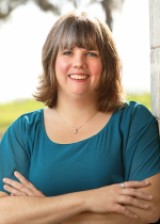 We wanted to get to know Karin Beery (
We wanted to get to know Karin Beery ( We wanted to get to know Rachel Bradley (
We wanted to get to know Rachel Bradley (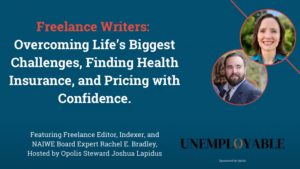 NAIWE’s Copyediting Expert Rachel Bradley was recently interviewed on
NAIWE’s Copyediting Expert Rachel Bradley was recently interviewed on